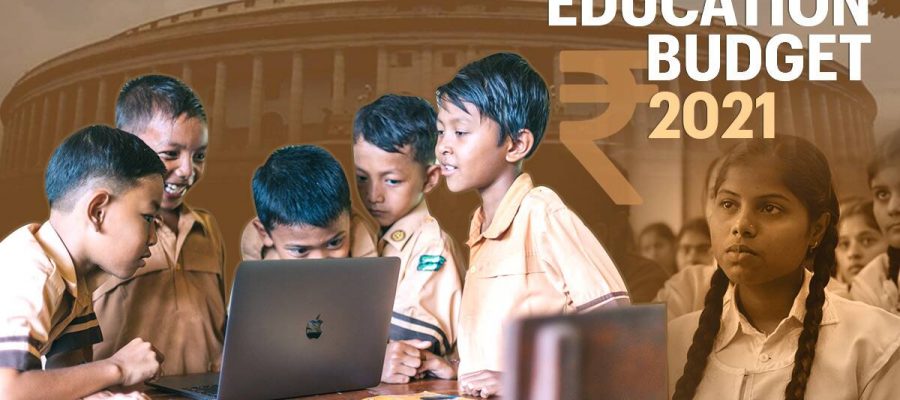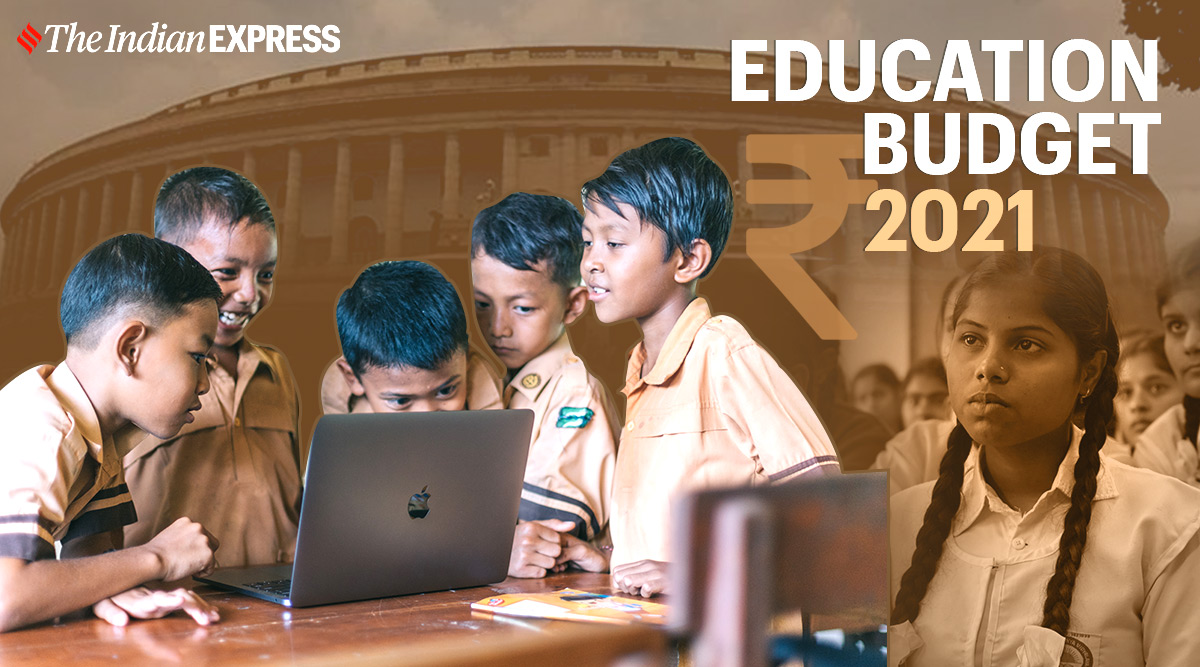After one of the most eventful years in the education space where physical schools and colleges were shut down and shifted to online space, the NEP 2020 was launched, demands from the Budget of the upcoming years are also varied. While most academicians demand further strengthening of infrastructure, FDI, and more allocation of funds. Here is a look at what the education sector wants from the Union Budget 2021.
Education institutes across the country remained physically shut in the 2020 academic year, debates on fee payment also crowded courts across India as many parents were not able to pay the entire course fee, and institutes struggled to develop digital infrastructure. Understandably, among major demands from the education sector is the building of digital infrastructure and increased allocation of funds.
Another major step taken by the government is the framing of the National Education Policy that has given hope to many academicians — thus demand for an implementation plan for the policy is what the sector is looking for.
Here is what the education sector wants from the Union Budget 2021.
Allocate 6 per cent of GDP to education
The current public expenditure on education in India has been around 4.4 per cent of GDP. This needs to be significantly increased to 6-7 per cent of GDP with a combined contribution of Centre and state governments. Similarly, if we want to give due importance to research, the research and innovation investment, which currently stands at about 0.8 per cent of GDP, needs to be enhanced to at least 2 per cent of GDP. FDI in education is another important aspect that the forthcoming budget needs to address. To take advantage of the technological advancements to the fullest, FDI is essential. NEP targets a lot of content creation in local and regional languages as well, which demands internet connectivity and FDI can be an able differentiator in that. The Union Budget 2021 should give guidelines on the ‘NEP implementation plan’ and further strengthen the focus and investment in edu-tech to enhance experiential and immersive learning and reinforce the skill development process at par with the global education standards, says Prof Mahadeo Jaiswal, director of IIM-Sambalpur.
Digital infrastructure needs more focus
“2020 has changed the fundamentals of learning in India. Technology is the main pillar to democratise education and it can create powerful communities. It has played a vital role in enabling the shift, especially in cities and towns with high-speed internet connectivity. However infrastructural issues in the form of internet access as well as smartphone and PC penetration owing to the lack of affordability has proved to be a major roadblock in the adoption of online learning in many parts of India. Digital infrastructure in schools, basic devices for students to access online education through PCs, tablets, and mobile phones as well as seamless internet connectivity, is the need of the hour. We are optimistic that the upcoming budget will deliver on these and bring hope to students and teachers in small-town India,” says Vamsi Krishna, CEO & Co-founder, Vedantu.
“A lot of schools, especially run by the government in rural belts, small towns got badly impacted due to the yawning digital divide. Government schools where 80-90 per cent of Indian students’ study are some of the biggest sufferers as students do not have the paraphernalia to attend online classes. Therefore, the first and foremost issue that needs to be addressed in this upcoming Budget is allocation of funds to develop digital infrastructure across the country, especially rural India, to bridge the gap between rural and urban and there is no inequality. The government must evaluate the situation on the ground and spend on assets for the long term that includes smart classrooms, Internet connection, and upskilling of teachers in line with NEP 2020. Teachers also need to adapt to the changing pedagogy and restructure their teaching methodologies. Meticulous budgetary guidelines need to be set for the implementation NEP 2020 as many things need to be restructured for its execution,” said Prof Mahadeo Jaiswal, director of IIM-Sambalpur.
Prof Anju Seth, Director, IIM-Calcutta, too raised demands for appropriate funds for the blended learning environment, “In order to realise the vision of NEP 2020, there should be a deep emphasis on experiential learning and creating more industry-academia partnerships to prepare students to become industry-ready. Blended and online learning models will be even more critical going forward, so it is important that the government allocates appropriate funds to develop digital infrastructure in all areas of the country. As an immediate step, getting students back to physical classrooms safely while ensuring a robust blended learning model (digital and physical) for education delivery should be of prime focus for both Central and state governments.”
Refocus on research
Prof Mahesh Panchagnula, dean (alumni and corporate relations), IIT-Madras, said, “The National Research Foundation, which was proposed as part of the National Education Policy, is a very important and innovative step to bring together all arms of government-funded research. I wish the finance minister provides for actionalising this National Research Foundation proposal.”
“In general, research is the backbone of our growth. It is the fuel that will take us deep into the 21st Century. It is important that this Budget, at the cusp of a growth era, provides and incentivises funding research. The private sector in India needs to be incentivized to step up and fund research either through their own resources (OR) by nudging them to spend more CSR on research. Both of these will go a long way in creating a very innovative, young India,” he added.
FDI in education
Manit Jain, Chairman, co-founder and director, FICCI ARISE, says that it is not wise to expect the entire required funding to come from the government and demanded for strengthening of FDI norms in education. “In order to reach the target of average spend of $173 billion a year to achieve the SDG 4 by 2030, it would be an unrealistic expectation to see that coming solely from government and pure philanthropic initiatives. In this context, we welcome the government’s steps towards encouraging sourcing External Commercial Borrowings and FDI to boost quality education. We hope this would pave the way for opening up and formalising the sector and ensuring long term responsible and patient capital, giving the much-needed confidence to potential investors to invest in the sector and expect legitimate RoI as spoken about several times in the past,” he said.
Source: Read Full Article


